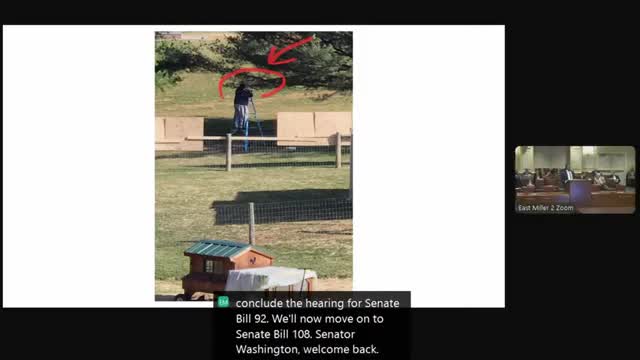Bill would require condo governing bodies to adopt smoking policies, supporters say it gives residents a voice
Get AI-powered insights, summaries, and transcripts
Subscribe
Summary
Senate Bill 108 would require governing bodies of common ownership communities to adopt a smoking policy at least as stringent as state and local law, proponents said, while opponents warned the measure could create retroactive burdens for long-term owners and ambiguous enforcement obligations.
Senate Bill 108 would require the governing body of a common ownership community (condominiums) to develop a policy addressing smoking that is at least as stringent as applicable state and local laws. Sponsors and proponents told the Judicial Proceedings Committee the measure does not require any particular outcome but requires associations to adopt a policy so prospective and existing owners understand the rules.
Sen. Alonzo Washington, introducing the bill, said the measure is narrowly limited to condos and ‘‘doesn’t require them to say that there's no smoking there’’ but would require associations to adopt a policy so residents know what to expect. Karen Straughan of the Consumer Protection Division of the Office of the Attorney General testified in support, saying her office receives complaints from condo residents who find smoke entering their units and that mediation alone offers no remedy without an association policy. "The policy can make whatever rules the association wants," Straughan told the committee, adding that the bill is aimed at giving buyers and current residents clearer information.
Multiple senators raised concerns about retroactivity and the practical effects of granting an association authority to adopt rules that could restrict residents who have lived in a unit for many years. Committee members asked whether the bill forces penalties, fines, or evictions. Proponents repeatedly said the bill merely requires a policy and does not mandate penalties; the association decides enforcement and whether to grandfather residents. Sen. Washington said associations already vote on many rules that affect owners and that this simply requires them to have a written policy on smoking.
Opponents included a representative of tobacco wholesalers, Bruce Boriano, who said the bill uses mandatory language and argued it requires that policies identify where smoking is allowed and include complaint and penalty processes. Boriano read aloud bill text and urged an unfavorable report. Supporters and other senators debated whether the bill’s language mandates fines and whether municipalities or associations would be compelled to create stringent rules. Several senators said they saw both sides: the measure would compel a difficult discussion in many associations but could give non-smokers a voice.
No formal committee vote was recorded during the hearing. Proponents asked for a favorable report and opponents asked for unfavourable consideration; stakeholders asked staff to craft clarifying amendments addressing concerns about mandatory language and margin/layout issues for standard forms.
